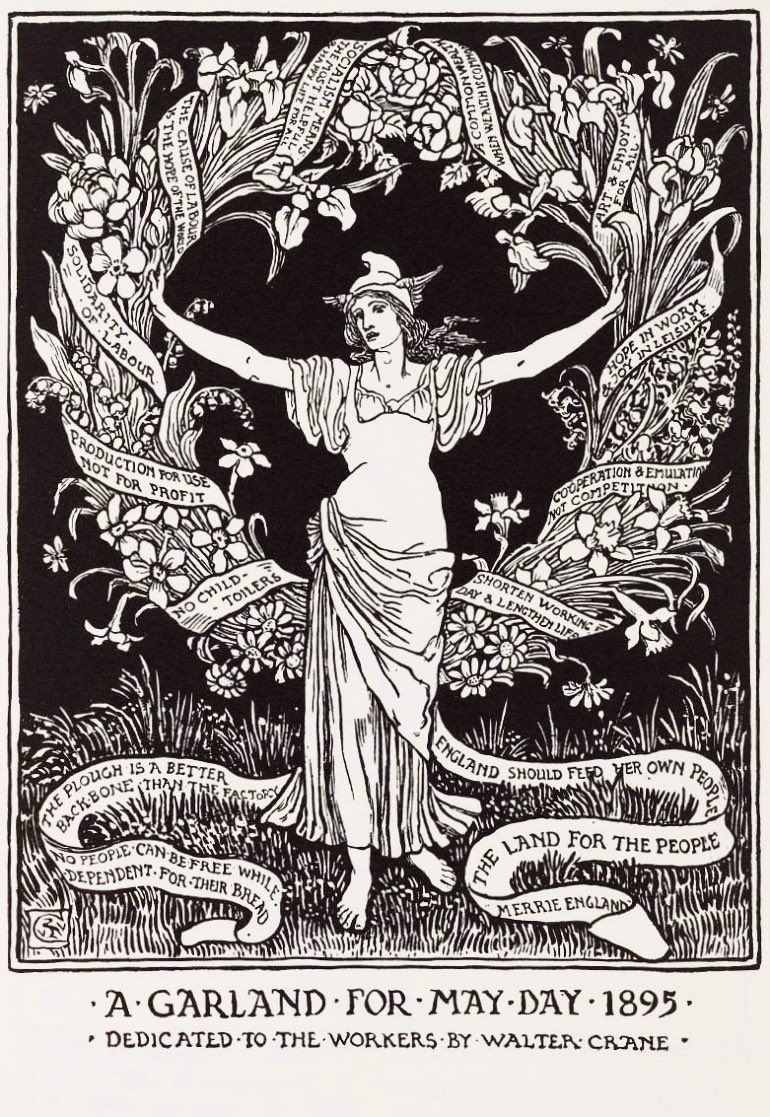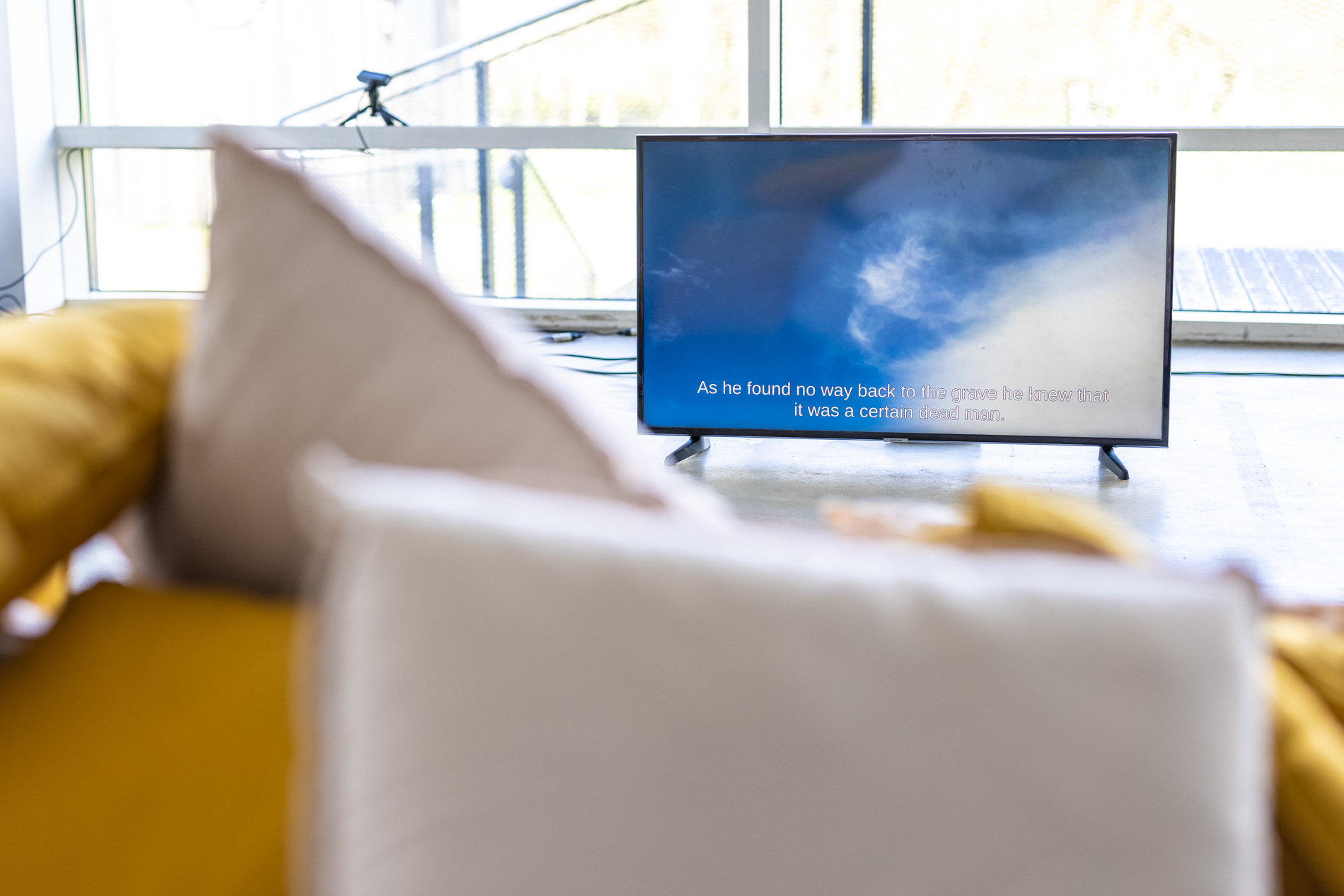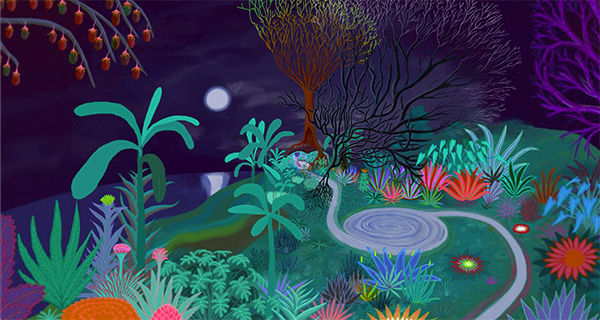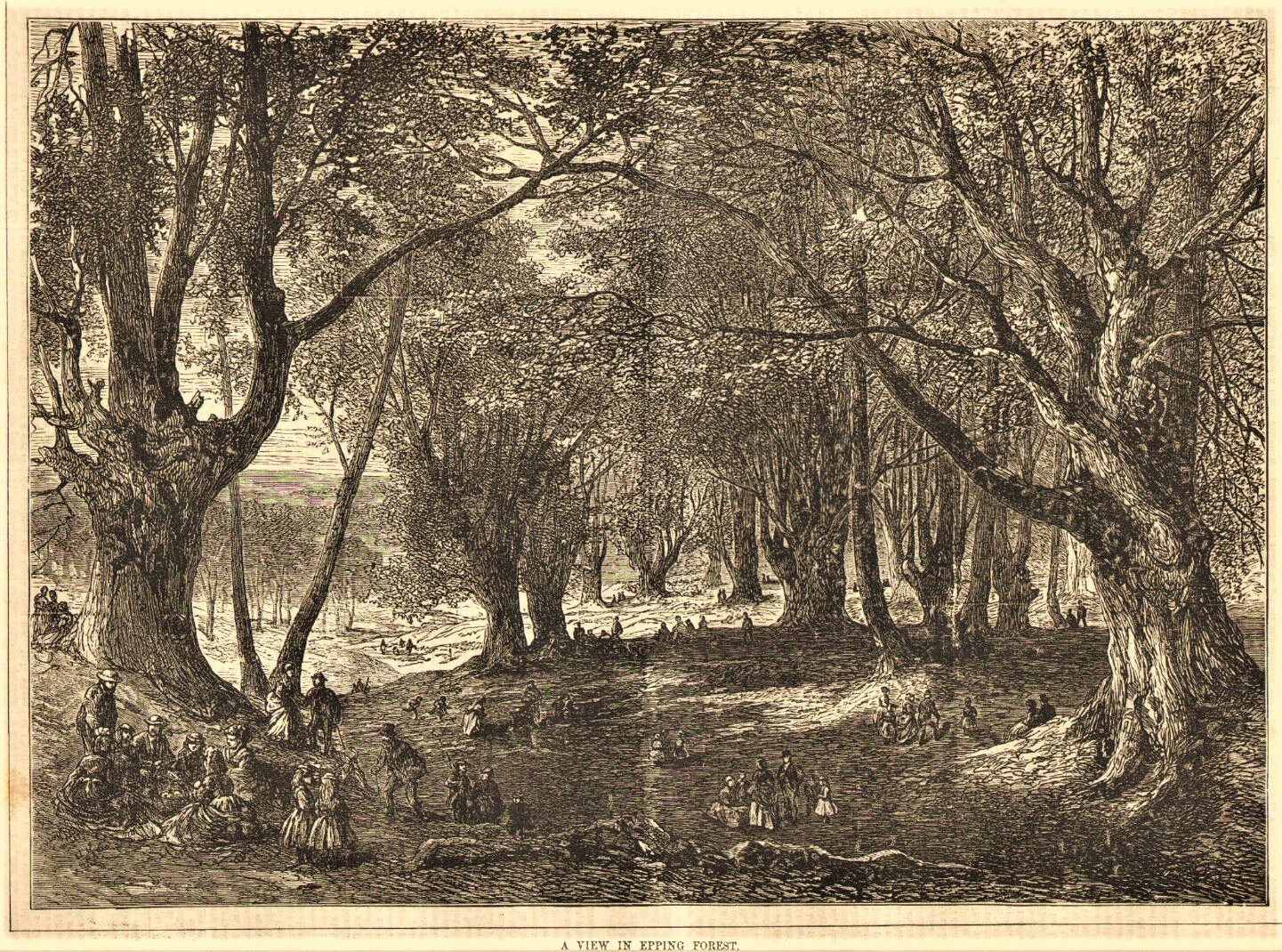— Hope in work & joy in leisure
Happy May Day!

It’s pretty wild to read about the origins of May Day. Workers had to fight so hard just to get an eight-hour day, which we now all take as given. Happy to see that it was Australian stonemasons who were the first to strike as part of the eight-hour day movement.
Eighteen Black Cats

Last week How had an exhibition here at Rupert, to show three of the works he’s been developing over the last few months. My favourite was the piece called Wool-gather:
Raising questions about machine consciousness and non-human creativity, Wool-gather brings together aeromancy, day-dreaming and cloud watching through machine learning and image processing. Pointing an object detection algorithm at the sky above Vilnius, the work uses the shapes of the clouds to generate meandering anecdotes and make whimsical predictions about the future.
It was really meditative to watch, very easy to just lie there and have the stories wash over you.
Listening and reading and watching
I watched Crip Camp the other evening, which I found really moving. The amount of fighting that disability activists did (and still have to do) to win the most basic rights is inspiring but also infuriating.
Related: Sonia recommended the Understanding Disability series by Nim Ralph, which unpacks the different models we use to understand disability, how these have developed over time and the impact this has on the lives of disabled people. Highly recommended.
Also thanks to Sonia (who is my main source of reading material these days) is this super interesting reflection on remote work. They argue that working remotely (or, working in distributed teams) removes work as the centre of meaning and fulfilment, allows us to build stronger communities where we live and, ultimately, live fuller lives.
Where and how to live has come up in a lot of conversations lately. Tom has told us about this collective in Sicily that is currently building a community and artist residency, and Anna keeps talking about tiny houses. I guess it’s a combination of the pandemic, being around our early 30’s and not wanting to move around or rent or sublet anymore. How and I still haven’t decided where to move now that we’ve left London, as the second wave has been worse and visas harder to come by than we expected. I really want to find somewhere (in Europe) that is pretty warm, close to nature but well-connected by train to a city… does this place exist?!

▲ Screenshot from the Arkadia Zoomquilt
I’ve started listening to a lot of super interesting podcasts lately, all circling the same kinds of themes:
New Constellations
Each episode focuses on one person, who talks about their practice, shares their visions for the future, tells stories about their own experiences and approach to life. It’s really well produced and quite relaxing to listen to, because it’s strongly focused on hope and imagination and mutual flourishing.
For All I Care
A series focused on care and healing, presented by Nwando Ebizie. Each episode features a really interesting mix of guests: artists, activists, scientists and care-workers.
Thank you Linsey for the recommendation 🌸
Serpentine
I discovered that the Serpentine gallery has a really good podcast, particularly the episodes created in collaboration with Future Ecologies. Lots of episodes featuring artists and activists who are responding to the climate crisis.
Anything with adrienne maree brown…
I really enjoy listening to her, so I’ve been following How to Survive the End of the World, Octavia’s Parables and the Emergent Strategy podcast.
